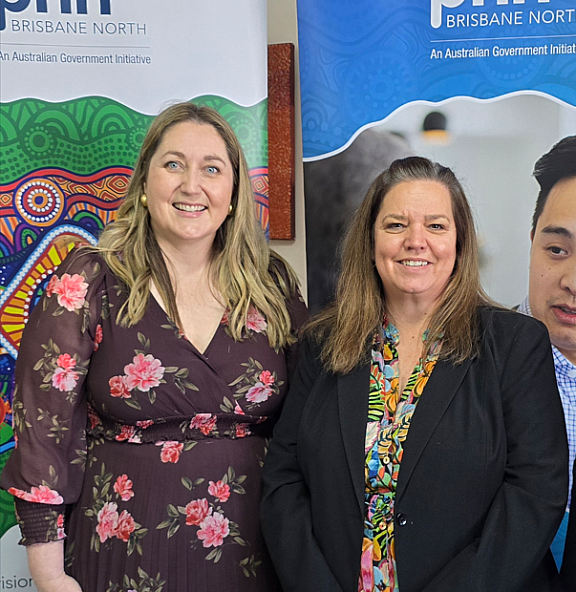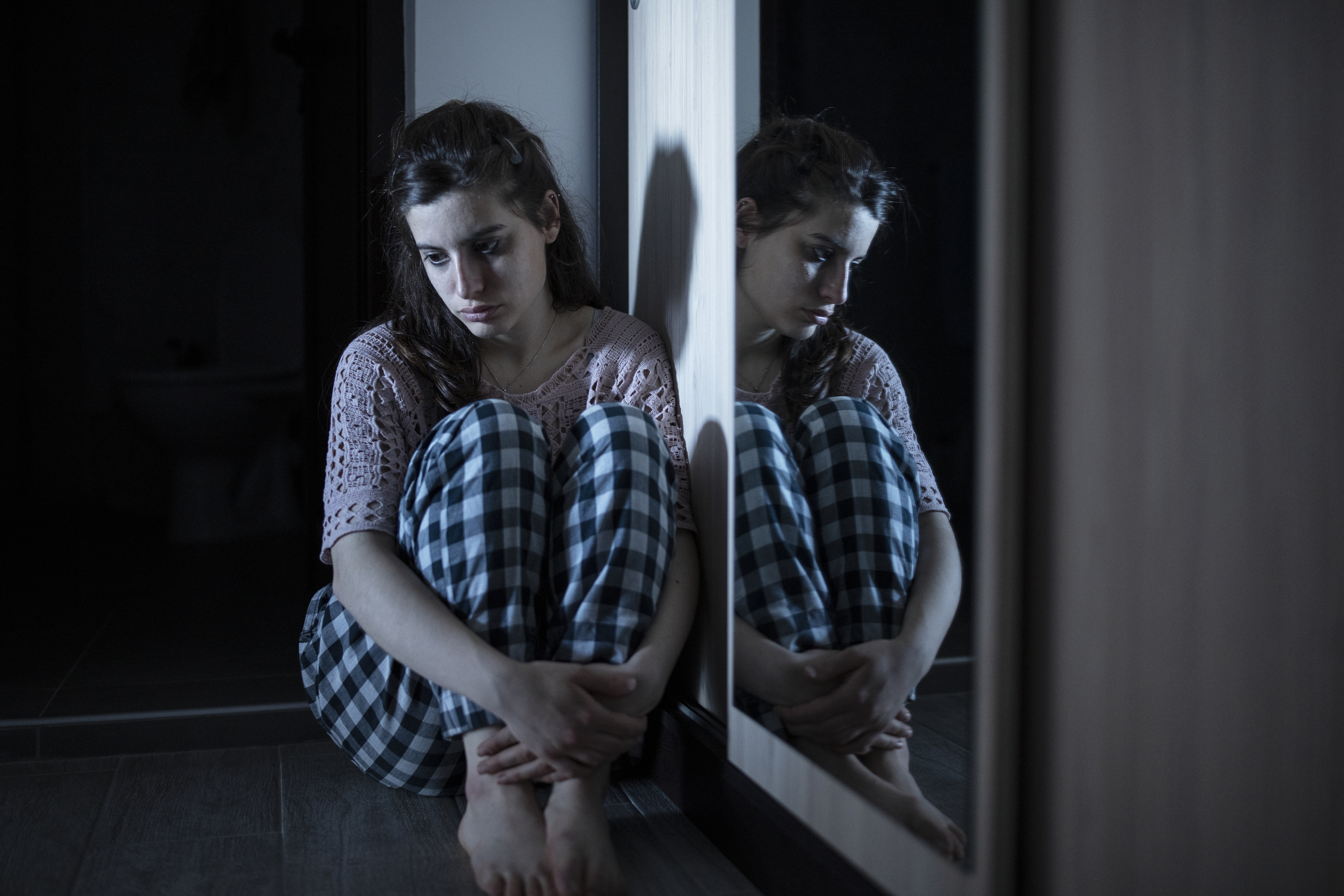
Announced: North Brisbane and Moreton Bay Medicare Mental Health Centres opening from July
Mar 27, 2025
May 12, 2022

One in six Australian women have experienced physical or sexual violence by an intimate partner since the age of 15.
While domestic and family violence (DFV) impacts people of all ages and circumstances, it is disproportionately affecting women and children. DFV has serious impacts on mental and physical health and is the leading risk contributor to disease burden for women of childbearing age.
Domestic and Family Violence occurs when someone intentionally uses violence or intimidation to control or manipulate a family member, partner or former partner. This behaviour is characterised by an imbalance of power, whereby the person using violence adopts abusive behaviours such as physical violence, emotional abuse, sexual violence, or attempts to control another person's behaviour.
A study conducted by Australia’s National Research Organisation for Women’ Safety found the COVID-19 pandemic had a significant impact on the rate of intimate partner violence. Many women reported experiencing physical or sexual violence, or emotionally abusive, harassing and controlling behaviour escalation or for the first-time in their relationship.
In addition, many women also wanted to seek help but were unable to do so due to safety concerns, and this has left a significant proportion without access to formal specialist support services.
In response to this, Brisbane North PHN has delivered Domestic and Family Violence training to general practices in the North Brisbane and Moreton Bay region. Funded by the Department of Justice and Attorney General, the training assisted teams to better recognise, respond and refer patients at risk or experiencing DFV to appropriate local specialist support and services. This training development included consultation with victim-survivors (women who have had a lived experience of DFV), who reside in the Brisbane North and Moreton Bay region.
Primary health care providers play an important role in being the initial and consistent point of professional contact for people who are experiencing family abuse or violence. It is estimated that full-time GPs see up to five women per week who have experienced some form of DFV – physical, emotional, sexual – in the past 12 months (Hegarty K, 2006).
Health practitioners should provide first line support by recognising, responding, referring and staying involved. Unfortunately, many miss the signs and indicators that a patient has or is experiencing DFV.
Victim-survivors have expressed they would like to see improved DFV training for doctors and that they need to take a strengths-based approach. They want doctors to ask the right questions, to make it easier for women to disclose and explain their situation.
“GP’s make diagnosis based on checklists rather than what is happening, so a GP needs to ask the right questions and dig deeper. The response now when you look at the system is that DFV may look like mental health and substance abuse issues, so if someone is experiencing DFV, these are the possible outlets. We should not be victimised because of the way we have coped, and we need to remove the stigma of people who have been impacted by abuse. These possible responses to DFV needs to be included in training for DFV and encouraging GPs to ask curious questions and deliver sensitive and trauma-informed care.”
– Victim-survivor
They want their doctors to recognise their symptoms and warning signs as DFV-related rather than mental health-related, and they want regular check-ins to ensure they are receiving the right support.
Intervention requires a whole-of-practice approach, as everyone has a role in supporting people affected by domestic and family violence. “For a woman in a position where trust has been destroyed there needs to be an incredibly safe place to go.” – Victim-survivor.
‘Women want to be listened too and I mean really listened to, to be validated and understood. To be seen to work in collaboration with the woman, to walk the journey together to get the best outcomes for her and her children.’
- Fiona, victim-survivor, The WEAVERs Group.
Be Ready as a practice to create a climate for disclosure. Does the practice have DFV resources available in waiting areas?
Recognise symptoms of abuse and violence, ask directly and sensitively. “Do you feel safe and respected at home?”.
Respond to disclosures of violence with empathetic listen – ‘I hear you’, ‘I believe you’.
Explore Risk and safety issues (brief risk assessment and safety plan). Document carefully what a patient says in their patient record. ‘Are you fearful right now?’ (Seek urgent support if there is imminent risk). Ask what they would like to do and give options and choice – patients choosing to not take further steps at that time is a valid choice. (QLD Health Response to disclosure flowchart).
Refer patients to specialist services for advocacy to enhance safety and mental health support (please see below for DFV services and support in our region).
Staying involved - Consistently follow up with appointments - ‘I’d like to check in again soon. What is the most supportive way for me to set up future appointments with you?
RACGP White Book
The White Book 5th Edition: Abuse and Violence – Working with our patients in general practice
Information Sharing Act
Domestic and Family Violence information sharing guidelines
Domestic and family violence referral pathways for GPs
Information on the assessment, management and referral of DFV in the North Brisbane and Moreton Bay region. Access Domestic and family violence HealthPathways.
Brisbane North PHN
Poster to display in your practice.
Domestic and Family Violence Data snapshot - DFV is the leading risk contributor to disease burden for women of childbearing age
DVConnect – Crisis hotline
Women’s line: 1800 811 811 (24/7)
Men’s line: 1800 811 811 (24/7)
1800RESPECT – Counselling hotline
1800 737 732 (24/7)
National sexual assault, family and domestic violence counselling service for anyone in Australia who has experienced, or is at risk of, family and domestic violence or sexual assault.
Brisbane Domestic Violence Service (BDVS) – Brisbane city and north area
(07) 3217 2544
BDVS provides support to any adult (regardless of gender), young person or child to reach a stage where they are safe and free from fear of DFV in the Brisbane Local Government Area. BDVS provide a range of services including information and referral, crisis support, practical assistance, advocacy and counselling and emotional support.
Centre Against Domestic Abuse (CADA) – Moreton Bay Area
(07) 5498 9533
CADA provides a range of services including, crisis support, court-based services, information and referral, practical assistance, advocacy, emotional support and counselling to people individuals (inclusive of all genders) who have experienced domestic and family violence. CADA operates across the Moreton Bay region.

We acknowledge the Traditional Custodians within our region: the Jagera, Turrbal, Gubbi Gubbi, Waka Waka and the Ningy Ningy peoples of where we meet, work and learn. Brisbane North PHN is committed to reconciliation. Our vision for reconciliation is where the stories of our First Nations’ people are heard and shared, and networks are formed.